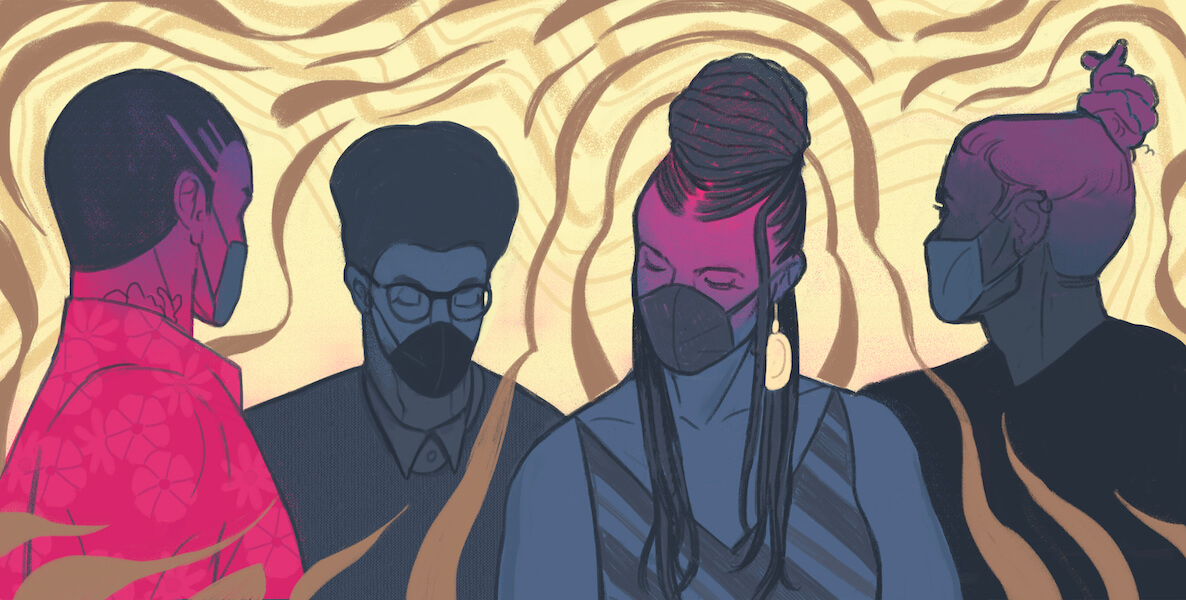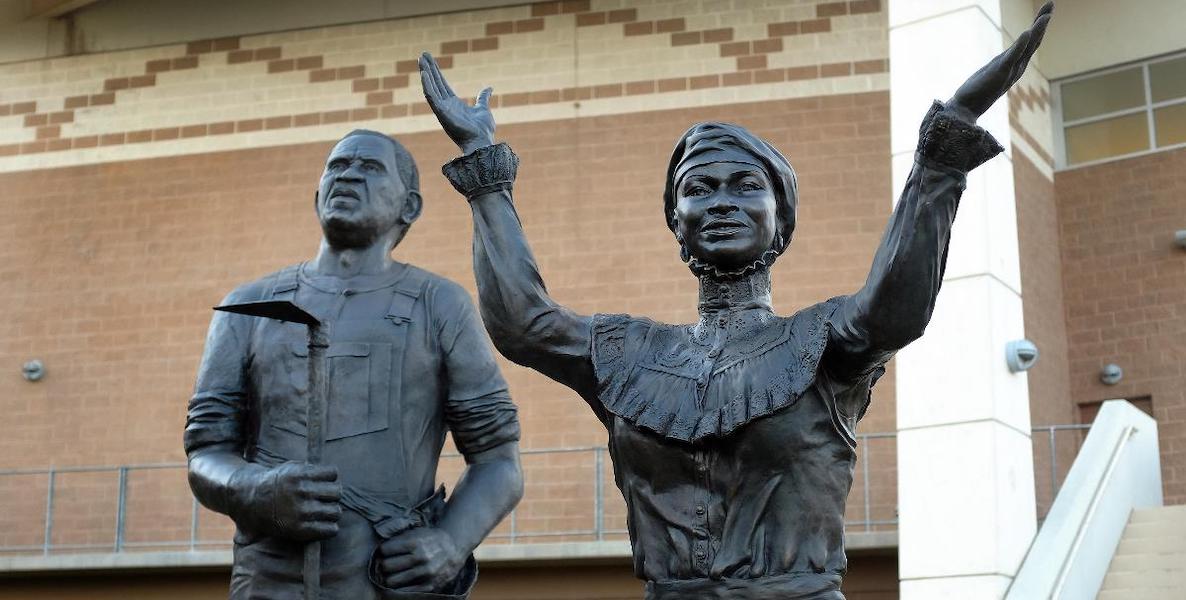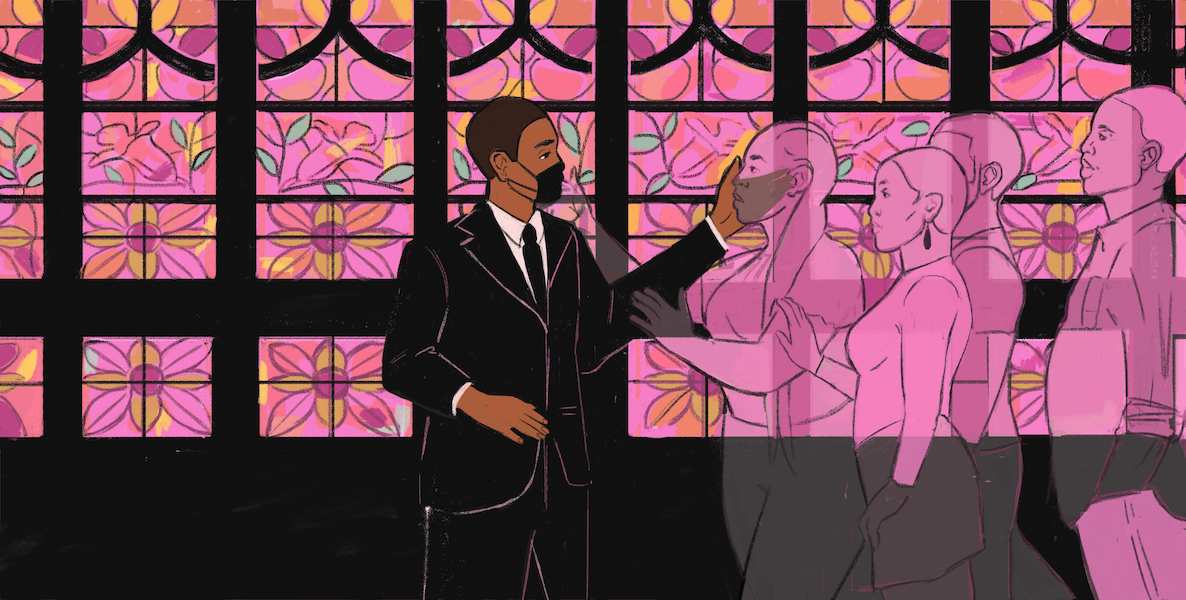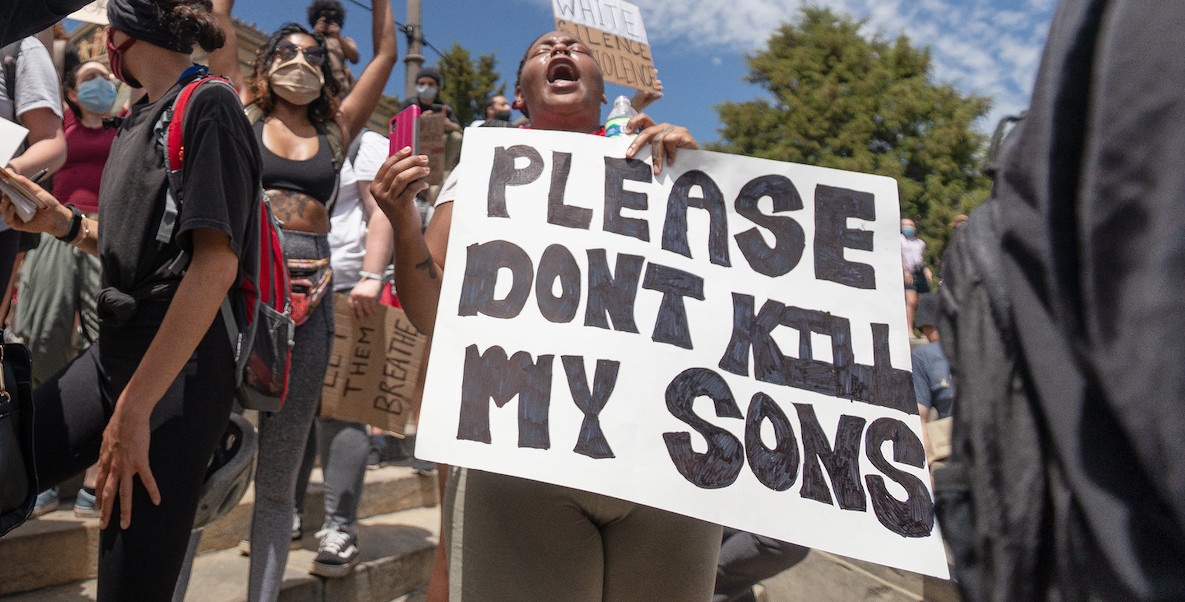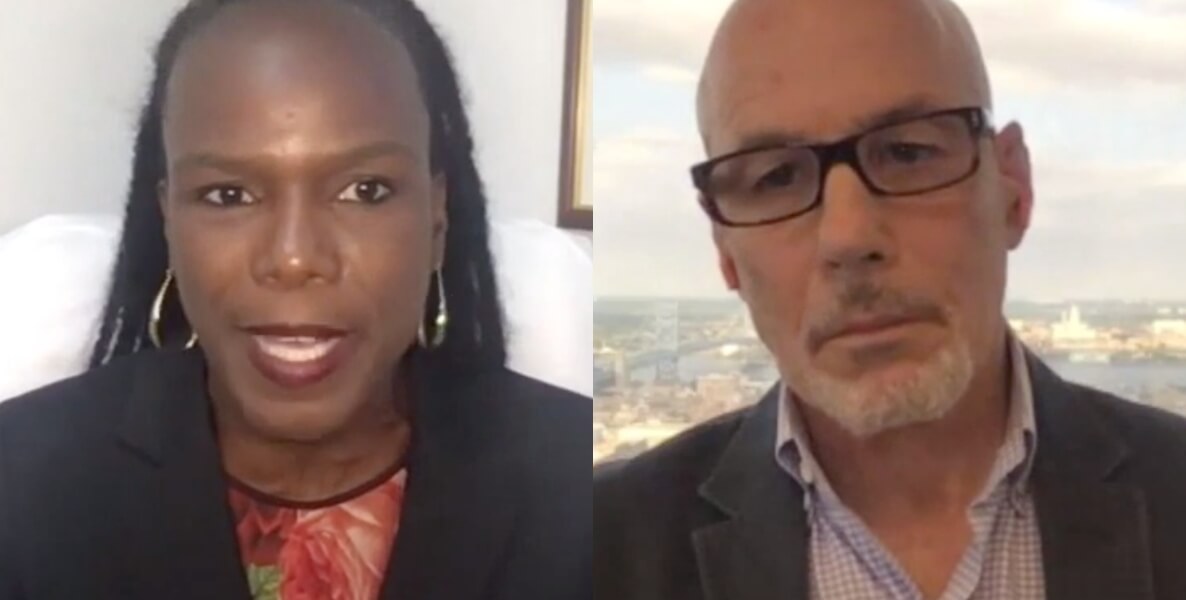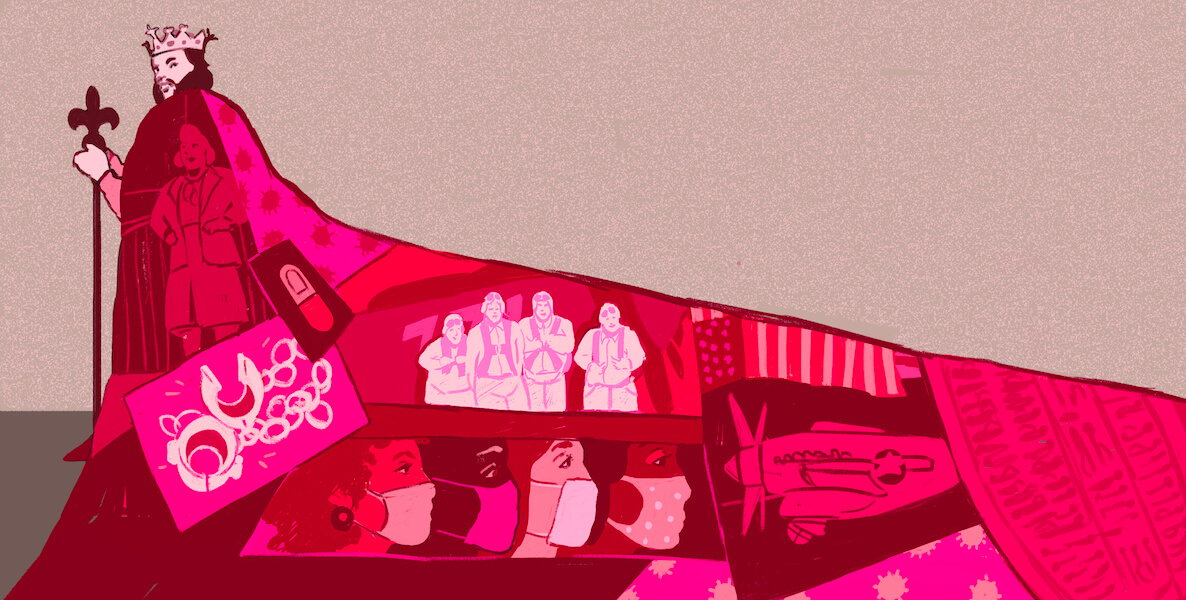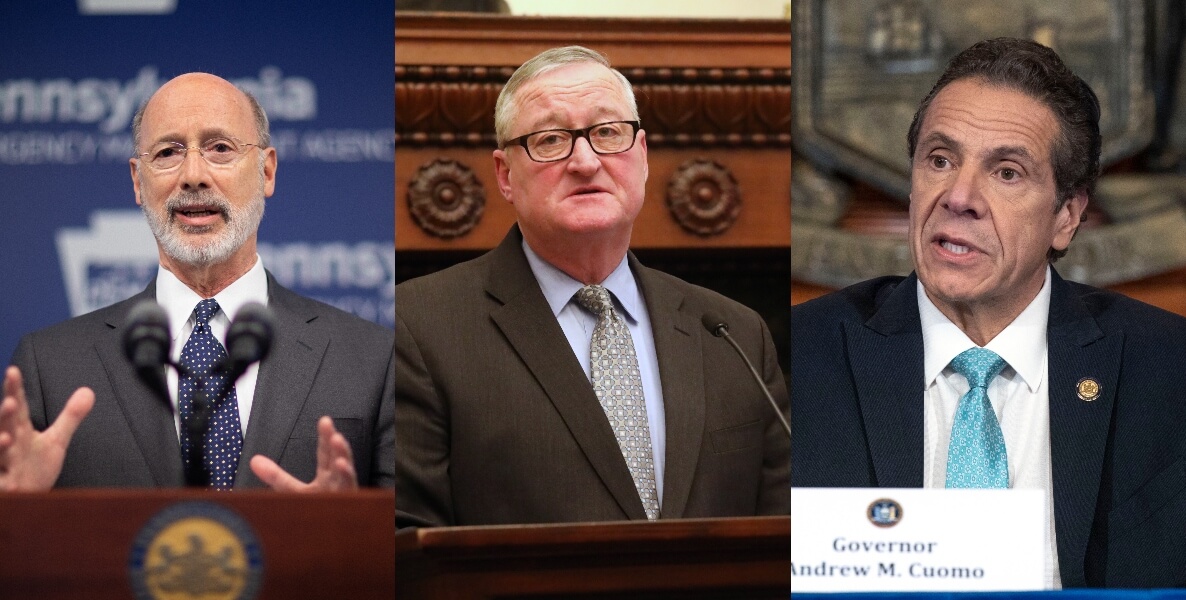To this story in CitizenCastLISTEN
Flanked by “America’s Frontline Doctors” all in white coats, Dr. Immanuel urgently argues that we could open schools and that no one has to die from Covid-19. These “Frontline Doctors” argue that we have all been duped by “fake science” into a kind of hysteria about Covid-19 that to them is unnecessary and unwarranted.
To date, over 150,000 Americans have died from Covid-19 and there are more than four million cases of diagnosed coronavirus nationwide. Hydroxychloroquine is not an effective treatment or cure for the virus. And wearing masks is one of the most effective means of mitigating the transmission of the virus.
Facts Are the Most Potent Antidote
When it comes to rumor and conspiracy, facts are the most potent antidote, but State Senator Anthony Williams believes the path ahead is challenging. “The governor, the mayor, the president, the senator—they are not necessarily listening to us, because they follow Facebook for their news,” Williams says. “They don’t follow us. They follow Twitter for their information. That’s the space we have to begin to dominate and drive out the message.”
The challenges of coronavirus are personal and professional for Senator Williams. He is feeling “much stronger” these days, but he is recovering from coronavirus and eager to get back to the important work of making sure that the pandemic is mitigated in a racially equitable way.
It is a strange morphological irony that ‘racism’ is embedded in the word conspiracism. Much like underlying health conditions, access to coronavirus testing, and Covid-19 mortality rates, conspiracism has a disparate impact on the African American community.
The America’s Frontline Doctors’ video, made viral by Breitbart’s politically conservative website (with help from Facebook, Twitter and Instagram), collected over 14 million views in six hours. Supportive tweets from the 45th President of the United States made matters worse. The president’s namesake son had his Twitter account suspended for retweeting the same viral video.
Within a day or so social media platforms had removed the video and various news outlets have since reported on the fact that the video is misinformative and counterfactual. But the damage has already been done.
Shut down conspiracy Do Something
This current administration’s mishandling of the pandemic will achieve legendary status in the annals of history. And that is an unfortunate disadvantage in the challenges that conspiracy theories present. “The government has to work with the community to create a bond of trust so constituents trust that elected officials and governmental departments are providing accurate information,” says Councilperson-at-Large Isaiah Thomas. When it doesn’t, conspiracy theories flourish.
Jesse Walker, author of The United States of Paranoia: A Conspiracy Theory, agrees. “Elected leaders should be as honest and transparent as possible,” he says, but when it comes to “debunking a false conspiracy theory,” Walker does not believe in any kind of cure-all. “People just need to learn to ask the same questions they should be asking about any other story. How strong is the evidence for this? What sort of track record does this source have? Basically, hone your media literacy skills and apply them all the time.”
It does not feel like (social) media literacy is at a premium during this pandemic. And the fact that there is a viral video about a viral pandemic underscores the speed with which information (and misinformation) can be circulated.
The critical role that contemporary media platforms have and will continue to play in how we process public health information has its highest stakes in the Black community.
Conspiracism in the African-American Community
It is a strange morphological irony that ‘racism’ is embedded in the word conspiracism. Much like underlying health conditions, access to coronavirus testing and Covid-19 mortality rates, conspiracism has a disparate impact on the African-American community.
“While engagement with conspiracy theories is high across the board, in the United States, African Americans appear in surveys to be more receptive to conspiracy theories in general,” says Professor Rob Brotherton, a psychologist and author of Suspicious Minds: Why We Believe Conspiracy Theories.
“Given that most conspiracy theories allege that authorities and institutions like the government or the medical establishment are not to be trusted, it’s entirely understandable that such theories resonate among communities with long histories of being marginalized and mistreated by those very institutions.”
Systemic racism is the root cause of the racial disparities evidenced in the impact of the pandemic in the African-American community. And systemic racism underwrites all of the ways in which conspiracies thrive in the African-American community. But the potential for Black people to believe in conspiracy theories related to public health—especially those theories that might preclude people from accurate public health knowledge during a global pandemic that disproportionately impacts African Americans—may have deadly disparate outcomes. If racism wasn’t already embedded in the word conspiracism, we would have to revise it for factual accuracy.
There are real conspiratorial reasons why African Americans have an abiding skepticism of the American health care industry. The U.S. government conspired with health officials to develop a treatment for syphilis by secretly studying it in Black men. Medical researchers developed “HeLa” cells from samples taken from Henrietta Lacks in 1951; the modern notion of informed consent did not exist then. These kinds of stories abound in American history and they provide a generative context for Black conspiracism to thrive.
The Root on Covid ConspiracismVideo
Eventually, the Blacks-don’t-get-it rumor was supplanted by the demographic data on deaths related to Covid-19. Unfortunately, the timing of an influx of data on racial disparities in coronavirus infection rates and Covid-19 mortality rates almost perfectly coincided with the implosion of the current administration’s façade of actually caring about the public health crisis evolving under their watch.
State Senator Anthony Williams, recovering from the virus himself, tells me that some of his Black constituents believe that “the government’s trying to kill us. So they created this virus, and of course it’s killing black people at a higher rate on purpose.”
Black conspiracy theorists seized on the fact that more Black people will die as a result of premature reopenings and general mismanagement of the pandemic in the U.S. Now, Senator Williams tells me that some of his Black constituents believe that “the government’s trying to kill us. So they created this virus, and of course it’s killing black people at a higher rate on purpose.”
The fact of disparate Black death is a compelling corollary for conspiracy theories that the U.S. government is deliberate in its failure to meet the challenges of the coronavirus pandemic.
While it is impossible to prove that the U.S. government is deliberately ignoring the public health intelligence on coronavirus because it believes that Black lives don’t matter, the consequences are the same for the Black community.
Intentional or not, the federal government’s ignorance and public health ineptitude has deadly disparate consequences for the Black community in America. And so, whether or not it’s a conspiracy is, in fact, immaterial. The consequences of an unchecked spread of coronavirus are real for Black folks.
A third iteration of Black conspiracism in the age of Covid-19 is bubbling up now as concerns about the vaccine, how it is tested, and who will actually take it begin to substantiate a new skepticism.
As early as late May, only about 25 percent of African Americans surveyed said they were willing to even take a coronavirus vaccine once one is available. This reluctance to be vaccinated is understandable, based upon history and the history of systemic racism. But the conspiracists (some in the Black community) will cultivate that skepticism and transform it into a full-blown conspiracy that the developers of the vaccine, in concert with the government and private industry, will deploy the vaccine (somehow/someway) to the detriment of the African American community.
Senator Williams is worried that the vaccine rollout will mirror the testing rollout in Philadelphia, i.e. “the vaccine rollout will follow your economic status.”
Looking to the King Alfred Plan For Solutions
Scholars who research conspiracism in the Black community generally agree that “theories about government conspiracies against Blacks are widespread in African American culture,” according to Professor Jennifer Crocker.
There are many fact-based reasons for this. But there are at least two inflection points that might help us to better understand why conspiracy theories are widespread in the Black community and how we might confront the specter of conspiracy in ways that work to keep the African-American community informed and vigilant about the real conspiratorial machinations in our midst.
For Professor Crocker and other scholars, system blame—“a specific tendency to make external attributions for the problems facing Black Americans as a group”—is the most likely underlying factor of Black conspiracism.
A new iteration of Black conspiracism is bubbling up now as concerns about the vaccine, how it is tested, and who will actually take it begin to substantiate a new skepticism. As early as late May, only about 25 percent of African Americans surveyed said they were willing to even take a coronavirus vaccine once one is available.
Black folks blame the system, not to absolve themselves of agency or to obscure bad choices/behavior. But to direct their vigilant skepticism toward the systemic nature of white supremacy and anti-Black racism—two ideological and material entities that brutally truncate the value of Black life in real time across all of America’s social and corporate institutions.
System blame is how kernels of truth often animate Black conspiracism in ways that make conspiratorial ideas sticky in Black public consciousness. One way—maybe the most effective way to diminish the suasion of Black conspiracism—is to eradicate anti-black racism in the systems through which the American government operates.
Recent work by James PetersonRead More
Read about the King Alfred Plan. You can find a copy here, but it is best read in the context of John A. Williams’ classic political novel, The Man Who Cried I Am.
The King Alfred Plan is named after King Alfred the Great, so monikered because of his Eurocentric efforts to foreground the Anglo-Saxons, uplift the English language (over Latin at that time) and to promote Christianity—arguably three pillars of modern white supremacy in America.
In the world of The Man Who Cried I Am, the King Alfred Plan is a plot designed by the CIA, in collaboration with nearly every facet of the American government and American law enforcement, to architect a final solution for the “minority” problem in America. It’s worth quoting here at length for readers to appreciate it’s ominous and veritable tones.
“Each passing month has brought new intelligence that, despite new laws passed to alleviate the condition of the Minority, the Minority still is not satisfied. Demonstrations and rioting have become a part of the familiar scene.
Troops have been called out in city after city across the land, and our image as a world leader severely damaged. . . . The Minority has adopted an almost military posture to gain its objectives, which are not clear to most Americans. It is expected, therefore, that, when those objectives are denied the Minority, racial war must be considered inevitable.
When that Emergency comes, we must expect the total involvement of all 22 million members of the Minority, men, women and children, for once this project is launched, its goal is to terminate, once and for all, the Minority threat to the whole of the American society, and, indeed, the Free World.”
In the real world, circa 1967, Williams decided to promote his novel, guerrilla-style, by placing photocopies of the King Alfred Plan in subway trains in New York City. The plan was taken as factual and it spread like a virus. It perfectly encapsulated the politics of the moment and the very real fear of how “the system” might respond to Black civil rights unrest in the streets of America. The plan became required reading for Black social movements and the sense of truth that it conveyed far outweighed the reality of its fictional creation.
The King Alfred Plan reminds us well why Black conspiracism reigns supreme in the contemporary moment. When the lines of fact and fiction are convincingly blurred, the truth of American anti-Black racism remains laid bare for all to see, hear and feel. This truth is too often endured in the lived experiences of African Americans.
Today, there may be no actual King Alfred Plan for the extinction of Black people in America, but the disparate impact of the coronavirus, the government’s mismanagement of the pandemic, along with the ongoing and unchecked brutalization of Black people by American law enforcement, combined with the recent martial response to civic unrest by this very same government, all collude to make us feel as if The Plan is already in full effect.
James Peterson is a writer, educator and consultant. The Color of Coronavirus series is supported by the Pamela and Ajay Raju Foundation.
Illustration by Noa Denmon


